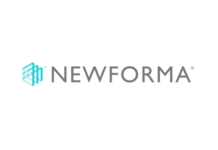
2017 is promising to be a big year for many businesses. In order to succeed in understanding the customer’s perspective, Customer relationship management (CRM) strategies are essential. In my opinion, customers will continue expecting emotionally intelligent communications that acknowledge their preferences. Keeping track of trends that affect CRM is vital for businesses that hope to apply these strategies. Here are the CRM trends that will define the industry in 2017.
Contextual CRM and enhanced realities: 2017 will see entrepreneurs exploring enhanced realities to help businesses succeed in building creative, exciting, effective campaigns. In an environment in which many customers view ads as noise that needs to be blocked, companies will start incorporating enhanced realities in their marketing campaigns. Contextual CRM will help to target every customer with the right message, in the right channel, at the right time.
Predictive Analytics : I expect the integration of predictive analysis into CRM platforms in 2017 to grow. Most CRM systems today only employ a semblance of predictive analysis. A much more comprehensive approach will lead to more powerful monetization methods, allowing for future value calculations. AI-based bots will become essential tools to churn out information from data that is growing at too great speeds to comprehend.
Adoption of Cloud : Cloud-based CRM will become a major priority in 2017. In my view, it is imperative to utilize the seamless integration of real-time data across various verticals of the business, to gain maximum traction in utilizing information. Cloud is the only way moving forward. Entrepreneurs who do not seek out these easy-to-deploy systems would be at a disadvantage.
Verticalized CRM : Verticalized CRM tailored for the specific industries and business verticals adds value to your business by providing the ease of automating specific internal business processes with minimal customisation, and helps bring out the most from customer data, specific for your vertical. It is armed with needs and nomenclature specific to the vertical, and hence is best suited to make the most out of your CRM strategies. Verticalized CRM would gain more traction in 2017, as marketing heads explore ways to get more out of their data as well as investments.
Collaboration of technologies : Business customers are finally demanding scalable and collaborative solutions. Many companies still buy their CRM technologies in separate pieces from different vendors for each individual department. With employees working from anywhere but office, to customers expecting a single face for all services, and verticalization of CRM, seamless integration of data is necessary. In my opinion, it is imperative that CRM providers understand this demand for scalability and ability to integrate across platforms, to survive competition from industry staples and innovative start-ups, alike.
Essentially the core of all major trends are the same every year, although how we achieve it would evolve with newer technologies, as we progress. The cost of acquiring a new customer has always been more expensive than retaining an existing one. In a recent research conducted by Smart Insights, more than two thousand marketers across the world predicted that social CRM and marketing automation are in the forefronts of the digital marketing trends for 2017. What is your take on CRM in 2017?






































